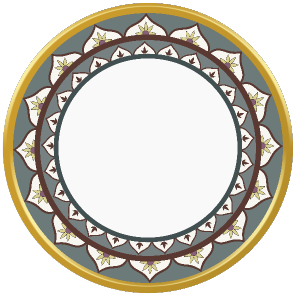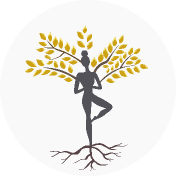Gallstones and Pregnancy!
Pregnancy is a big change for a woman, in terms of life and body. One has to go through too many hormonal changes. The two hormones progesterone and oestrogen levels are increased during pregnancy. Now many times postpartum women tend to develop gallstones. What is the reason for
gallstones after pregnancy?
Gallstones occurrence during pregnancy or after delivery can be due to hormonal changes, obesity, hereditary reasons, advanced age of the mother, etc. The
increased levels of progesterone and oestrogen contribute to the formation of gallstones.
For that let us understand the function of the gallbladder. Gallbladder produces bile which helps in the digestion of fats in our body. Bile is released in the intestine which in turn breaks down fats. Bile is composed of water, bile salts, cholesterol, etc. During pregnancy when the body produces more progesterone it tends to relax the muscles of the body including gallbladder which in turn slows down the release of bile ultimately forming gallstones or
cholelithiasis. After delivery, the body takes some time to regain to its original form. Sometimes rapid weight loss causes accumulation of more cholesterol in the bile resulting in the formation of gallstones.

Functioning of Gallbladder
Symptoms of having gallstones including stomach pain, nausea, vomiting, bloating, fever and chills. The doctors prescribe treatment as per the severity of the symptoms and the gallstones.
Gallbladder removal is the last option when all the other treatments have failed.
Generally, the doctors treat gallstones with medicines first, but sometimes the gallstones are too many and then surgery is unavoidable. To diagnose the gallbladder pain and gallstones, liver function tests, abdominal x-ray, complete blood count, etc. are carried out.
Severe pain during gallbladder pain is treated with painkillers, lithotripsy (breaking of gallstones), and dissolution.
Since the postpartum period is a very delicate period for the new moms,
natural cure for gallstones is preferable (unless too severe). New moms shouldn’t try to go for a drastic weight loss. Drastic weight loss causes accumulation of excess cholesterol in the bile which can further aggravate the formation of gallstones. New mothers should consume less fattening food, more fruits and vegetables, stay hydrated. New moms should exercise after consulting with the doctor.
Gallbladder treatment and gallstone removal can be done in the following ways:
- ESWL (Extracorporeal shock wave lithotripsy). It is a treatment in which a device generates shock and breaks down the gallstones.
- Medicines are used to dissolve the gallstones. It generally takes a lot of time.
- Cholelithiasis treatment by cholecystectomy (removal of the gallbladder).
Removal of gallbladder doesn’t have any impact on the production of bile or digestion of fats. Instead of gallbladder releasing bile into the intestine, the liver directly releases bile into the intestine and hence there is no problem.

Pregnancy
Here are few natural cures for gallstones:
- Apple juice. It is believed, though not established, that apple juice can help soften gallstones and help pass the stones.
- Apple cider vinegar. Again, there is no evidence that ACV really helps to pass off gallstones in urine.
- Dandelion. People drink dandelion tea and coffee for gallstones cure, but again its effectiveness is questionable.
- Yoga. Some yoga poses like Bhujangasana, Sarvangasana, etc. are supposed to cure gallstones. They might not cure but may provide some relief.
- Turmeric with honey. Mixing turmeric with honey and consuming it daily helps.
Pregnancy and delivery are major changes in a woman’s body and if she suffers from
gallstones after pregnancy it can cause more pain and discomfort.
Gallstone removal and
gallbladder treatment should be given priority during this stage. The body is at a recovery stage, so things should be taken seriously. The new mother should rest, follow the doctor, and eat a proper diet. A healthy mother is a happy mother after all.
For more interesting content,
Like our Facebook page,
Follow us on Twitter, and Subscribe to our digital
magazine BananiVista.






 Functioning of Gallbladder
Symptoms of having gallstones including stomach pain, nausea, vomiting, bloating, fever and chills. The doctors prescribe treatment as per the severity of the symptoms and the gallstones. Gallbladder removal is the last option when all the other treatments have failed.
Generally, the doctors treat gallstones with medicines first, but sometimes the gallstones are too many and then surgery is unavoidable. To diagnose the gallbladder pain and gallstones, liver function tests, abdominal x-ray, complete blood count, etc. are carried out.
Severe pain during gallbladder pain is treated with painkillers, lithotripsy (breaking of gallstones), and dissolution.
Since the postpartum period is a very delicate period for the new moms, natural cure for gallstones is preferable (unless too severe). New moms shouldn’t try to go for a drastic weight loss. Drastic weight loss causes accumulation of excess cholesterol in the bile which can further aggravate the formation of gallstones. New mothers should consume less fattening food, more fruits and vegetables, stay hydrated. New moms should exercise after consulting with the doctor.
Functioning of Gallbladder
Symptoms of having gallstones including stomach pain, nausea, vomiting, bloating, fever and chills. The doctors prescribe treatment as per the severity of the symptoms and the gallstones. Gallbladder removal is the last option when all the other treatments have failed.
Generally, the doctors treat gallstones with medicines first, but sometimes the gallstones are too many and then surgery is unavoidable. To diagnose the gallbladder pain and gallstones, liver function tests, abdominal x-ray, complete blood count, etc. are carried out.
Severe pain during gallbladder pain is treated with painkillers, lithotripsy (breaking of gallstones), and dissolution.
Since the postpartum period is a very delicate period for the new moms, natural cure for gallstones is preferable (unless too severe). New moms shouldn’t try to go for a drastic weight loss. Drastic weight loss causes accumulation of excess cholesterol in the bile which can further aggravate the formation of gallstones. New mothers should consume less fattening food, more fruits and vegetables, stay hydrated. New moms should exercise after consulting with the doctor.
 Pregnancy
Pregnancy